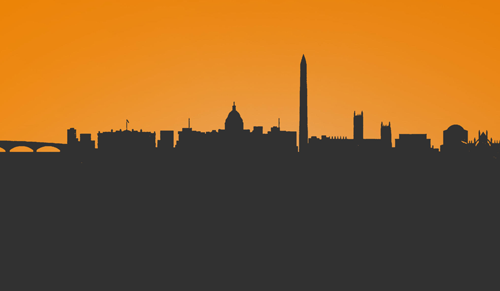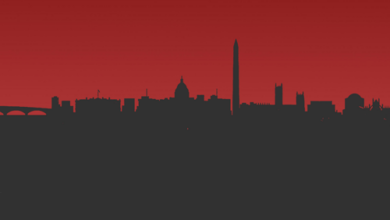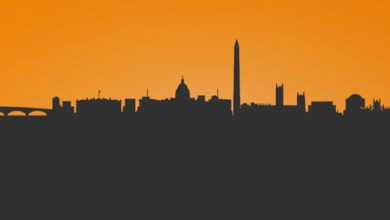
The Quick Take
A quick look at the headlines this week 👀🏃🏻♀️
- Venezuela: On April 30, Juan Guaidó, Venezuela’s opposition leader, announced Operación Libertad, or Operation Liberty, which intended to push out Venezuela’s president, Nicolás Maduro. It didn’t.
- ISIS: He’s baaaaccckkk: The Islamic State’s leader, Abu Bakr al-Baghdadi, appeared in a video earlier this week, praising the Easter bombings in Sri Lanka. He has not been seen since 2014.
- Japan: Emperor Akihito became the first Japanese emperor to abdicate in more than 200 years. His son, Emperor Naruhito, took up the throne.
- Spain: High voter turnout in Spain’s elections last Sunday, keeping the Spanish Socialist Worker’s Party in power, but also giving the right-wing Vox a boost.
- South Africa: South Africans go to the polls next Wednesday, May 8 to vote in a general election.
- Afghanistan: The U.S. and Taliban started peace talks in Qatar this week.
- France: On May Day, protests broke out in violence in Paris. About 200 were arrested.
- Wikileaks: A British court sentenced Wikileaks founder, Julian Assange, to 50 weeks in prison. That’s just for jumping bail.
- Trade: There might be a breakthrough in the U.S.-China trade negotiations, possibly by next Friday.
- Britain: Theresa May fired, or as the Brits say, “sacked,” her defense secretary, over leaks to the media about giving China’s technology giant, Huawei, a limited role in building the UK’s 5G telecommunications networks. Penny Mordaunt succeeds him, making her Britain’s first female defense secretary. #SilverLining
We’re going to dive right into the news this week — we’re on the road! We’ll return with our opinions next week.

Venezuela
The Maduro-Guaidó showdown may have gone Maduro’s way this week, but one thing is for sure: Opposition to Maduro isn’t going away, and neither are the protests. We’ve written here before about the devastating situation in Venezuela, with hyperinflation and food shortages. In short, instability will continue to rock Venezuela, and the struggle for its leadership is not over. The WSJ reported that Guaidó held talks with officials within the Maduro government about his ousting. To be continued….
The Maduro-Guaidó showdown may have gone Maduro’s way this week, but one thing is for sure: Opposition to Maduro isn’t going away, and neither are the protests. We’ve written here before about the devastating situation in Venezuela, with hyperinflation and food shortages. In short, instability will continue to rock Venezuela, and the struggle for its leadership is not over. The WSJ reported that Guaidó held talks with officials within the Maduro government about his ousting. To be continued….
- Why is Russia clashing with the U.S. over Venezuela? Emily Tamkin breaks it down. (Washington Post)
- Trump’s sanctions will neither succeed in sparking regime change in Venezuela and Iran in the short run, nor serve U.S. foreign policy interests in the long run, write Zoe Weinberg and David Cohen. (Foreign Affairs)
- In Venezuela, root for the people, says Frida Ghitis. (CNN)
South Africa
In April 1994, South Africa held elections where, for the first time, citizens of all races were allowed to vote. Nelson Mandela’s African National Congress (ANC) won then, on the campaign slogan, “a better life for all.” Twenty-five years later, many South Africans continue to suffer. Corruption and insecurity are rampant. Economic growth has stalled. As South Africans go to vote on May 8, there is much apprehension but also a lot of hope. Jacob Zuma, South Africa’s president from 2009 until his ousting last year, is not standing for leadership again. On the ballot is Cyril Ramaphosa. He was part of Mandela’s team that negotiated the end of apartheid and has a reputation for being an honest reformer. This is definitely an election to watch.
In April 1994, South Africa held elections where, for the first time, citizens of all races were allowed to vote. Nelson Mandela’s African National Congress (ANC) won then, on the campaign slogan, “a better life for all.” Twenty-five years later, many South Africans continue to suffer. Corruption and insecurity are rampant. Economic growth has stalled. As South Africans go to vote on May 8, there is much apprehension but also a lot of hope. Jacob Zuma, South Africa’s president from 2009 until his ousting last year, is not standing for leadership again. On the ballot is Cyril Ramaphosa. He was part of Mandela’s team that negotiated the end of apartheid and has a reputation for being an honest reformer. This is definitely an election to watch.
- Why South Africa’s “freedom generation” is turning its back on the elections. Jane Flanagan reports. (The Times)
- South African voters, long staunch ANC supporters, seek change, writes Anita Powell. (VOA News)
Easter bombings in Sri Lanka
All the bombers from Easter Sunday in Sri Lanka have been identified. They include one woman. Most of the bombers were Sri Lankan.
All the bombers from Easter Sunday in Sri Lanka have been identified. They include one woman. Most of the bombers were Sri Lankan.
- Sri Lanka’s draconian policies to combat the recent terrorist attack might incite more violence rather than quell it, argues Nimmi Gowrinathan. (Foreign Policy)
- Sri Lanka must not be pulled into yet another “war on terror” at the expense of minorities’ rights, Kitana Ananda and Mythri Jegathesan write. (CNN)
China!
We haven’t touched on the Asian titan in a while. The U.S. has continued trade negotiations with China, and it hasn’t been easy. There are a lot of sticking points. The U.S. wants China to buy more of its products. It is also demanding that Beijing end subsidies aimed at boosting high-tech sectors China wants to dominate (China has set 2025 as a goal for becoming a technology leader), and end practices that force U.S. companies into joint ventures with Chinese firms. (China does not allow foreign companies to operate on their own in 35 categories.) How will this end? We might find out by the middle of next week.
- How should Americans respond to the rise of China? According to Ann Lee, demonizing China will worsen military tensions between the two nations and risk damaging the global economy. (Project Syndicate)
- Amid the US-China trade war, another conflict is brewing: the US-China “visa war,” which refers to the increasing number of Chinese students, scholars, and researchers whose visas are being canceled by the U.S. government. Charlotte Gao reports. (The Diplomat)
- Elmira talked to Ann Lee about the U.S.-China trade talks. (Project Syndicate)
To read the entire issue of FP Interrupted, click here. To subscribe to FP Interrupted, click here.


